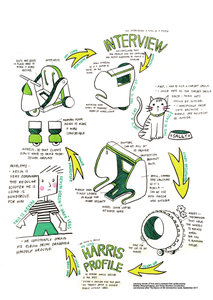Explicit language objectives are included in the Swedish national curriculum for mathematics. The curriculum states that students should be given opportunities to develop the ability to formulate problems, use and analyse mathematical concepts and relationships between concepts, show and follow mathematical reasoning, and use mathematical expressions in discussions. Teachers’ competence forms a crucial link to bring an intended curriculum to a curriculum in action. This article investigates a professional development program, ‘Language in Mathematics’, within a national program for mathematics teachers in Sweden that aims at implementing the national curriculum into practice. Two specific aspects are examined: the selection of theoretical notions on language and mathematics and the choice of activities to relate selected theory to practice. From this examination, research on teacher learning in connection to professional development is proposed, which can contribute to a better understanding of teachers’ interpretation of integrated approaches to language and mathematics across national contexts.
DOCUMENT

Industrial Design Engineering [Open] Innovation (IDE) is a 3-year, English taught, VWO entry-level, undergraduate programme at The Hague University of Applied Sciences (THUAS). The IDE curriculum focuses on the fuzzy front end of (open) innovation, sustainable development, and impact in the implementation phase of product-service design. The work field of Industrial Design Engineering and Open Innovation, like many other domains, is growing increasingly more complex (Bogers, Zobel, Afuah, Almirall, Brunswicker, Dahlander, Frederiksen, Gawer, & Gruber, 2017). Not only have the roles of designers changed considerably in the last decades, they continue to do so at increasing speed. Therefore, industrial design engineering students need different and perhaps more competencies as young professionals in order to deal with this new complexity. Moreover, in our transitional society, lifelong learning takes a central position (Reekers, 2017). Students need to give their learning path direction autonomously, in accordance with their talents and interests. IDE’s Quality & Curriculum Committee (QCC) realized in 2015 there is too much new knowledge to address in a 3-year programme. Instead, IDE students need to learn how to become temporary experts in an array of topics, depending on the characteristics of each new project they do (see Textbox 1). The QCC also concluded that more than just incremental changes to the current curriculum were needed; thus, the idea for a flexible, choice-based semester approach in the curriculum was born: ‘Curriculum M’ (Modular). A co-creational approach was applied, in which teaching staff, students, alumni, prospective students, industry (including the (international) social profit sector), and educational advisors collaborated to develop a curriculum that would allow students to become not just T-shaped (wide basis, one expertise) professionals, but U- or W-shaped professionals, with strong links to other disciplines.
DOCUMENT

Within the Netherlands, Content and Language Integrated Learning (CLIL) in foreign language teaching can be considered a sibling of 'Language Oriented Content Teaching' (LOCT), a pedagogy in mainstream classes with second language learners of Dutch, where Dutch is used as language of instruction. This article characterizes two decades of research on LOCT through Dutch in multilingual schools and discusses its relevance for CLIL development.
DOCUMENT